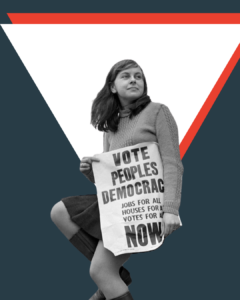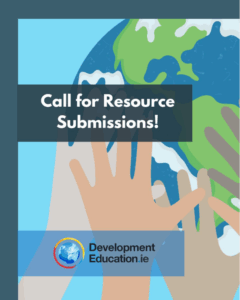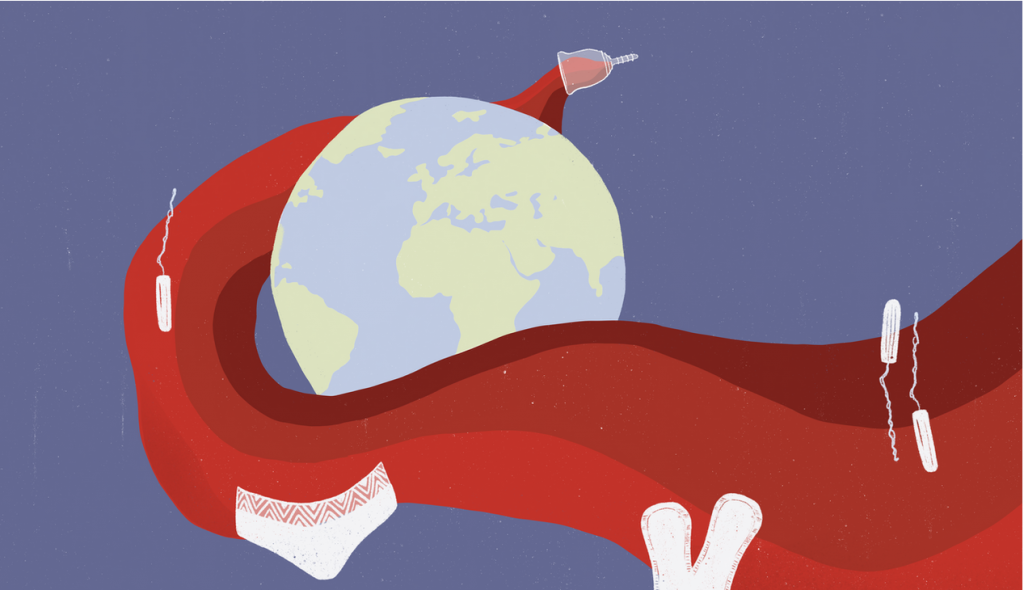STAND and USI are demanding global menstruation justice now and are urging students across Ireland to take action. Around 26% of the global population are of reproductive age and more than 800 million people menstruate daily (UNICEF & Global Citizen). Women and menstruators around the world are facing significant barriers, disempowerment and shame and it’s holding us all back. So, it’s time to #FreetheFlow.
Join the Free The Flow campaign as outlined by USI and STAND below.
Promoting menstrual equity is key to supporting people with periods. Menstruation justice encompasses all pillars of sustainability – economic, environmental, social and cultural. We at STAND want to look at it from all angles and we want you to join our campaign.
Overall annual costs of period products per woman in Ireland are estimated at €96.72. With the inclusion of pain relief, this can be estimated at a minimum of €121 per annum (Department of Children, Equality, Disability, Integration and Youth).
National data suggested that approximately 53,000 – 85,000 women and girls in Ireland may be at risk of period poverty. And globally, 12.8% of people with periods live in poverty and struggle to access the resources to manage their periods (UN Women & Department of Children, Equality, Disability, Integration and Youth). Tampons, pads and panty liners along with their packaging and individual wrapping generate more than 200,000 tonnes of global plastic waste per year and the average person who menstruates throws away up to 200 kg of menstrual products in their lifetime. (Friends of the Earth).
From material problems like a potential lack of access to sanitation supplies to social biases that characterise menstruation as ‘unhygienic’ or ‘unclean’, period stigma ultimately results in a lower quality of life for those who are faced with it. Stigma leads to misinformation, myths and mistreatment and it keeps women and girls around the world from accessing basic human rights.
Myths about cleanliness keep people with periods from the classroom and interrupt their education; putting them at a greater risk of child marriage, and getting pregnant at a younger age, which comes with heightened health risks (UN Women).
So we’re asking the big question: why? Why does it have to be this way?
We believe that when we #FreetheFlow everyone benefits. We’re all held back without menstrual equity. So, we’re asking those who menstruate, and those who don’t, to take action.
Join us to tackle stigma, increase accessibility and sustainability, and reduce the factors that contribute to period poverty. We, as a collective, have the power to change this cycle.
We want you to take local action for global change, ensuring that women and menstruators around the world are empowered rather than burdened every time their period comes around.
The #FreetheFlow campaign will introduce us to the barriers to menstruation justice and explore the ways we can break them down. When you join us and take the pledge we’ll send you a list of ways to be a period activist, a flow fighter, a bloody revolutionary!
Campaign Event Guide
The #FreeTheFlow campaign will bring together activists and experts to share information and insights that will inspire students to stand up for menstrual equity.
Among those featured are Candice Chirwa, the ‘Minister of Menstruation’, Lama Naja the Gender and Inclusion Specialist at Plan International Lebanon, and Anne Holmes, Development Specialist at the Department of Foreign Affairs.
Explore more on developmenteducation.ie

Beth Doherty: Youth Activism and the Climate Crisis
From School Strikes to Global Climate Talks The latest episode of the Irish Global Solidarity in 100 Objects podcast features Beth Doherty, climate activist and

Mary Lawlor: Defending Human Rights Defenders
A Conversation with the UN Special Rapporteur for Human Rights Defenders The latest episode of the Irish Global Solidarity in 100 Objects podcast features Mary

Irish Women in Activism and Advocacy: In Awe of All Mná
Explore inspiring stories of Irish women in activism and advocacy who have fought for human rights, social justice, and equality at home and abroad

Call for resource submissions open – education resources during an era of climate promises, disinformation and pandemics
Submit or recommend resources to be included in the Ireland-wide audit of development education and global citizenship education resources.

Podcast: If Another World Is Possible, It Is Up to Us to Make It So
A Reflection on Palestinian Solidarity and Collective Action In this episode of the Irish Global Solidarity in 100 Objects podcast, Ciara Regan revisits her 2021

Podcast: Exploring Global Citizenship with a Ball of String
The Power of Simple Tools in Teaching Global Citizenship Sometimes, the most impactful lessons come from the simplest tools. In this episode of the Irish


